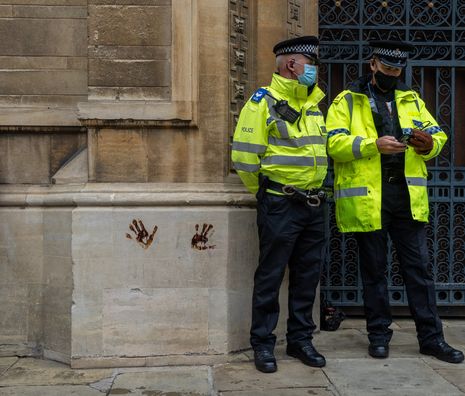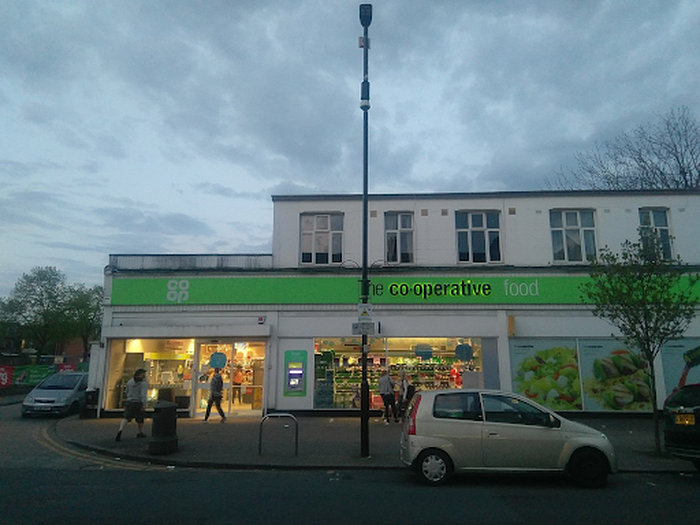Cambridge alumnus highlights growing trend of anti-Asian hate crimes
Yuanzhao Zhang has set up a website where victims can report racially motivated attacks

Content Note: This article contains mentions of racism and racially motivated violence
Yuanzhao Zhang, a Cambridge University alumnus, has highlighted a growing trend in Asian hate crimes in Cambridge, after he fell victim to racial assault on September 18th.
The attack took place in a Cambridge Co-op during Zhang’s weekly shop, where he was badly beaten by over 10 teenagers. There have been several other incidents since, which Zhang believes may be connected.
Zhang sustained serious injuries and required nasal surgery to treat his broken nose and septum. The teenagers were not arrested and Zhang believes that they are responsible for several other incidents that have taken place since his own assault.
Zhang has since set up a website to highlight the growing number of anti-Asian incidents in Cambridge and has received 30 responses to his “incident accounts” form, which encourages Asian residents of the city to speak up about any hate incidents that they have experienced.
One respondent recalled having to escape to their college after three white men yelled racial slurs and chased them. Another response said that a group sprayed juice on them. The anti-Asian incidents have been reported all over Cambridge, including on Parker’s Piece and on Mill Road.
Several respondents to Zhang’s form claim to have been harassed by the same group of teenagers, which Zhang says is “beyond outrageous”. Zhang also reported that the group may be connected to other incidents not involving Asian victims.
Zhang’s petition to “Stop Asian Hate” has now gained over 1500 signatures. The petition calls on the local government to respond to the “growing trend of Asian students/citizens being harassed” in Cambridge.
Zhang spoke to Varsity about how this growing hate crime rate should be dealt with, saying “it would be a great start to increase funding to the police.” He added that “the University and the police both haven’t done enough to stop this gang. Especially given that the majority of the people harassed/attacked are students.”
He has said that it is “appalling” that the Cambridgeshire police have not made an arrest given the frequency of the attacks.
Daryl Preston, the Cambridgeshire Police and Crime Commissioner, has released a statement in response: “There is no place for any kind of racially motivated crime in our county and I can assure you that these recent incidents are being taken very seriously by the Constabulary.”
“To victimise anyone for who they are is inexcusable. I want to remind anyone who finds themselves targeted for abuse because of their gender, race, religion, sexual orientation or disability, that they should report it to the police.”
The Chinese embassy has issued a statement to Chinese nationals living in the UK, urging them to be vigilant following the recent attacks in Cambridge and elsewhere. The embassy expressed sympathy and solicitude towards the victims of any attacks and urged UK officials to apprehend the offenders.
This recent attack comes amidst a growing anti-Asian hate movement. Lucy Cavendish alumnus Yinsey Wang is the co-founder of Voice ESEA (East and South East Asians), an organisation dedicated to education around anti-Asian hate crimes and aiming, according to their founding Instagram post, to “champion solidarity with people of all races and backgrounds.”
Wang and her team members at voice ESEA set up a petition in August, which has since closed with over 22,000 signatures, aiming to push Parliament to offer victims of COVID-related anti-Asian hate crimes support funds and strengthen anti-racism programmes.
The government response to the petition on 28/04 stated that it has “been appalled at the attacks that East and South-East Asian communities have endured as a result of the pandemic and condemn them unequivocally.”
Voice ESEA has also conducted research on local police forces’ recording of and responses to these hate crimes via a set of freedom of information requests to over 40 police forces in the UK. In an interview last month with Voice ESEA’s data collection team, Abbey Wong, the Data Team Lead, stated that the project aimed to “build an understanding of the scale of police-reported hate crime in different regions”.
Cambridgeshire Police’s response recorded 23 anti-Asian hate crimes over the course of 2020, with 7 of them taking place in February, when coronavirus first became a point of significant national attention. 3 of those crimes in February, as well as an additional 4 over the rest of the year, were flagged as COVID-related. This represents a 21.78% increase from 2019 to 2020 in anti-Asian hate crimes in Cambridgeshire.
Voice ESEA concluded by commenting that “these rates may not be reflective of the full scale of figures given [that] victims may not wish to report such incidents to the police for a variety of reasons.”
 News / Colleges charge different rents for the same Castle Street accommodation2 March 2026
News / Colleges charge different rents for the same Castle Street accommodation2 March 2026 News / News in Brief: waterworks, wine woes, and workplace wins 1 March 2026
News / News in Brief: waterworks, wine woes, and workplace wins 1 March 2026 News / Climate activists protest for ‘ethical careers policy’1 March 2026
News / Climate activists protest for ‘ethical careers policy’1 March 2026 News / Angela Merkel among Cambridge honorary degree nominees27 February 2026
News / Angela Merkel among Cambridge honorary degree nominees27 February 2026 News / Private school teacher who lied about Cambridge degree barred from teaching27 February 2026
News / Private school teacher who lied about Cambridge degree barred from teaching27 February 2026









